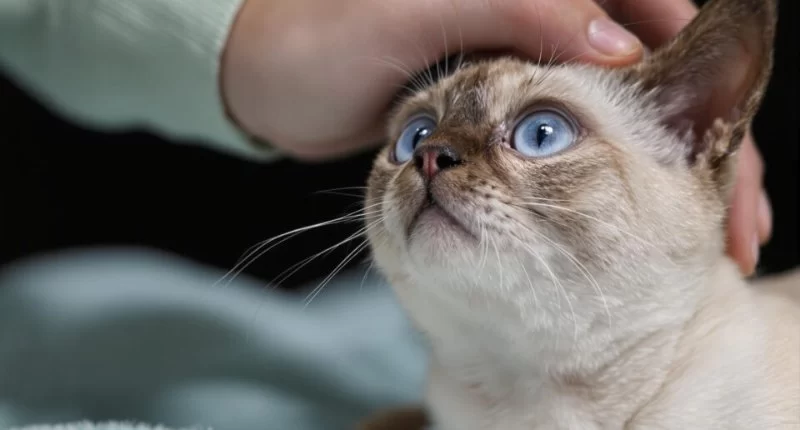- 1-Understanding-Pet-Hypoglycemia-and-Why-It-Happens-#understanding-pet-hypoglycemia-and-why-it-happens
- 2-Common-Signs-of-Low-Blood-Sugar-in-Pets-#common-signs-of-low-blood-sugar-in-pets
- 3-Immediate-Steps-to-Take-During-a-Hypoglycemia-Episode-#immediate-steps-to-take-during-a-hypoglycemia-episode
- 4-Real-Life-Experiences-That-Show-the-Importance-of-Quick-Action-#real-life-experiences-that-show-the-importance-of-quick-action
- 5-Long-Term-Strategies-to-Manage-Pet-Hypoglycemia-#long-term-strategies-to-manage-pet-hypoglycemia
- 6-How-Diet-and-Routine-Influence-Blood-Sugar-#how-diet-and-routine-influence-blood-sugar
- 7-When-to-Consult-a-Veterinary-Professional-#when-to-consult-a-veterinary-professional
- 8-Finding-the-Right-Support-for-Pet-Health-#finding-the-right-support-for-pet-health
1. Understanding Pet Hypoglycemia and Why It Happens
Managing pet hypoglycemia starts with understanding what low blood sugar really means for animals. Hypoglycemia occurs when a pet’s blood sugar drops below healthy levels, depriving the brain and muscles of essential energy. Puppies, small dog breeds, and pets with underlying medical conditions such as diabetes are especially prone to low blood sugar episodes.
While humans may experience mild symptoms when blood sugar falls, pets can decline much faster because their bodies have a smaller energy reserve. This makes awareness and prevention essential for any responsible pet owner.
Why Young or Small Pets Are More Vulnerable
Smaller pets burn energy quickly. Their high metabolism, combined with limited glucose storage, makes them more sensitive to changes in feeding schedules or stress.

999 N State Rd 434 #1010, Altamonte Springs, FL 32714, USA
See Details2. Common Signs of Low Blood Sugar in Pets
The symptoms of hypoglycemia can appear suddenly and worsen within minutes. Some of the most common warning signs include trembling, weakness, disorientation, or sudden lethargy. In severe cases, pets may collapse or experience seizures, making quick intervention critical.
Owners often mistake these symptoms for exhaustion or heat stress, which delays appropriate care. Knowing the difference is key to protecting your pet’s health.
Behavioral Changes Are Often the Earliest Clue
If your normally energetic pet suddenly seems confused or unusually clingy, this could be an early signal of low blood sugar.
3. Immediate Steps to Take During a Hypoglycemia Episode
When a pet shows signs of hypoglycemia, acting quickly is essential. Providing a small amount of glucose—such as rubbing a bit of corn syrup or honey on their gums—can raise blood sugar fast enough to stabilize them until veterinary care is available.
If your pet becomes unconscious or unable to swallow normally, skip oral sugars and seek emergency care immediately. Delayed treatment greatly increases the risk of long-term neurological damage.
Staying Calm Helps You Act Effectively
Your pet will sense your stress. Remaining steady and focused helps you take the steps needed to keep them safe.
4. Real Life Experiences That Show the Importance of Quick Action
One widely shared story online described a family who almost lost their young toy breed dog due to a sudden hypoglycemia episode. After skipping just one meal while traveling, the puppy collapsed. Quick thinking and immediate sugar application helped revive him long enough for a vet visit, where he fully recovered.
Another pet owner shared how her diabetic cat had a hypoglycemic drop after an insulin adjustment. She noticed unusual pacing and trembling, recognized the signs, and intervened early—avoiding what could have been a dangerous emergency.
These Examples Highlight How Fast Situations Can Escalate
Understanding the early signs gives owners the power to act before the condition becomes life-threatening.
5. Long-Term Strategies to Manage Pet Hypoglycemia
Preventing hypoglycemia requires consistency and attention to detail. Regular feeding schedules, monitoring your pet’s weight, and avoiding high-stress environments are essential. For diabetic pets, precise insulin dosage is critical—miscalculations can easily trigger a dangerous blood sugar crash.
Your veterinarian may recommend periodic blood sugar checks, dietary adjustments, or supplements to stabilize your pet’s glucose levels.
Building a Routine Your Pet Can Rely On
Stable routines help pets maintain healthy blood sugar levels and reduce the likelihood of sudden drops.
6. How Diet and Routine Influence Blood Sugar
A balanced diet is one of the strongest tools for managing pet hypoglycemia. High-quality, protein-rich foods help maintain steady energy throughout the day. Avoiding long gaps between meals is especially important for small breeds and puppies.
Some pets benefit from small, frequent meals rather than one or two large ones. Ask your veterinarian whether this approach suits your pet’s health needs.
The Importance of Hydration
Proper hydration supports the body’s ability to regulate glucose. Pets who do not drink enough water may experience faster blood sugar shifts.
7. When to Consult a Veterinary Professional
If hypoglycemia occurs more than once, or if symptoms become severe, it’s time to seek veterinary guidance. Chronic low blood sugar can indicate underlying conditions such as liver disease, pancreatic problems, or hormone imbalances.
Veterinarians can run diagnostic tests and provide treatment plans tailored to your pet’s health. Platforms like Hidden Brook Veterinary offer access to trusted professionals who understand the complexities of managing pet hypoglycemia and other chronic conditions.
Never Ignore Recurring Symptoms
Repeated episodes may signal serious internal issues that only a trained professional can diagnose.
8. Finding the Right Support for Pet Health
Pets with hypoglycemia require patient, knowledgeable care. Having the right support, resources, and veterinary guidance makes the journey easier and ensures your pet’s long-term well-being. By educating yourself and using reliable services such as Hidden Brook Veterinary, you can create a safe and stable environment for your pet.
Your pet relies on you to recognize symptoms, respond quickly, and make preventive choices that protect their health. With the right knowledge and support, managing pet hypoglycemia becomes far less overwhelming.











